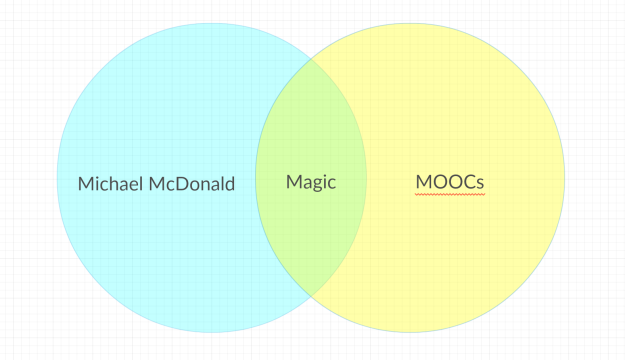You mean to tell me everything that happened was just so I would record a song for a Gregory Hines movie?
Michael McDonald, Yacht Rock (Episode 12)
If you’re affluent, we can do a much better job with you, we can make magic happen.
Sebastian Thrun, Pando Q&A, 5/12/14
Thirty years ago this week, the featured song on from the movie Running Scared, Michael McDonald’s Sweet Freedom made its way to #7 on the Billboard Top 40 (an anniversary I have not seen noted anywhere), an event which decades later was anointed as the apex of the musical genre Yacht Rock. Five years ago this month, three courses in the Stanford Computer Science department were offered online at no cost to the general public (an anniversary already noted at Coursera and Udacity), an event which months later was anointed the birth of the Massive Open Online Course.
Is there a connection?


